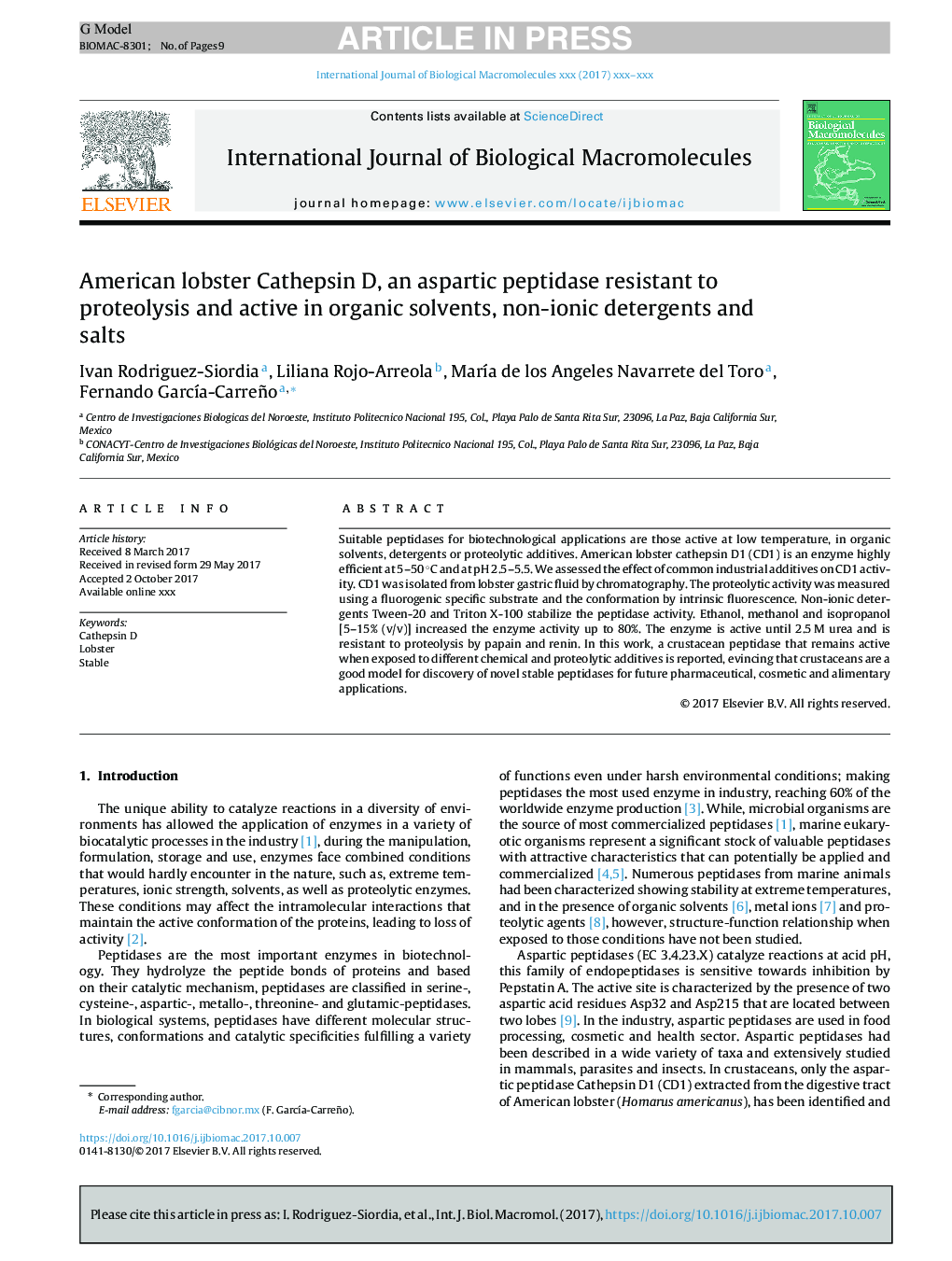| Article ID | Journal | Published Year | Pages | File Type |
|---|---|---|---|---|
| 8328667 | International Journal of Biological Macromolecules | 2018 | 9 Pages |
Abstract
Suitable peptidases for biotechnological applications are those active at low temperature, in organic solvents, detergents or proteolytic additives. American lobster cathepsin D1 (CD1) is an enzyme highly efficient at 5-50 °C and at pH 2.5-5.5. We assessed the effect of common industrial additives on CD1 activity. CD1 was isolated from lobster gastric fluid by chromatography. The proteolytic activity was measured using a fluorogenic specific substrate and the conformation by intrinsic fluorescence. Non-ionic detergents Tween-20 and Triton X-100 stabilize the peptidase activity. Ethanol, methanol and isopropanol [5-15% (v/v)] increased the enzyme activity up to 80%. The enzyme is active until 2.5 M urea and is resistant to proteolysis by papain and renin. In this work, a crustacean peptidase that remains active when exposed to different chemical and proteolytic additives is reported, evincing that crustaceans are a good model for discovery of novel stable peptidases for future pharmaceutical, cosmetic and alimentary applications.
Keywords
Related Topics
Life Sciences
Biochemistry, Genetics and Molecular Biology
Biochemistry
Authors
Ivan Rodriguez-Siordia, Liliana Rojo-Arreola, MarÃa de los Angeles Navarrete del Toro, Fernando GarcÃa-Carreño,
